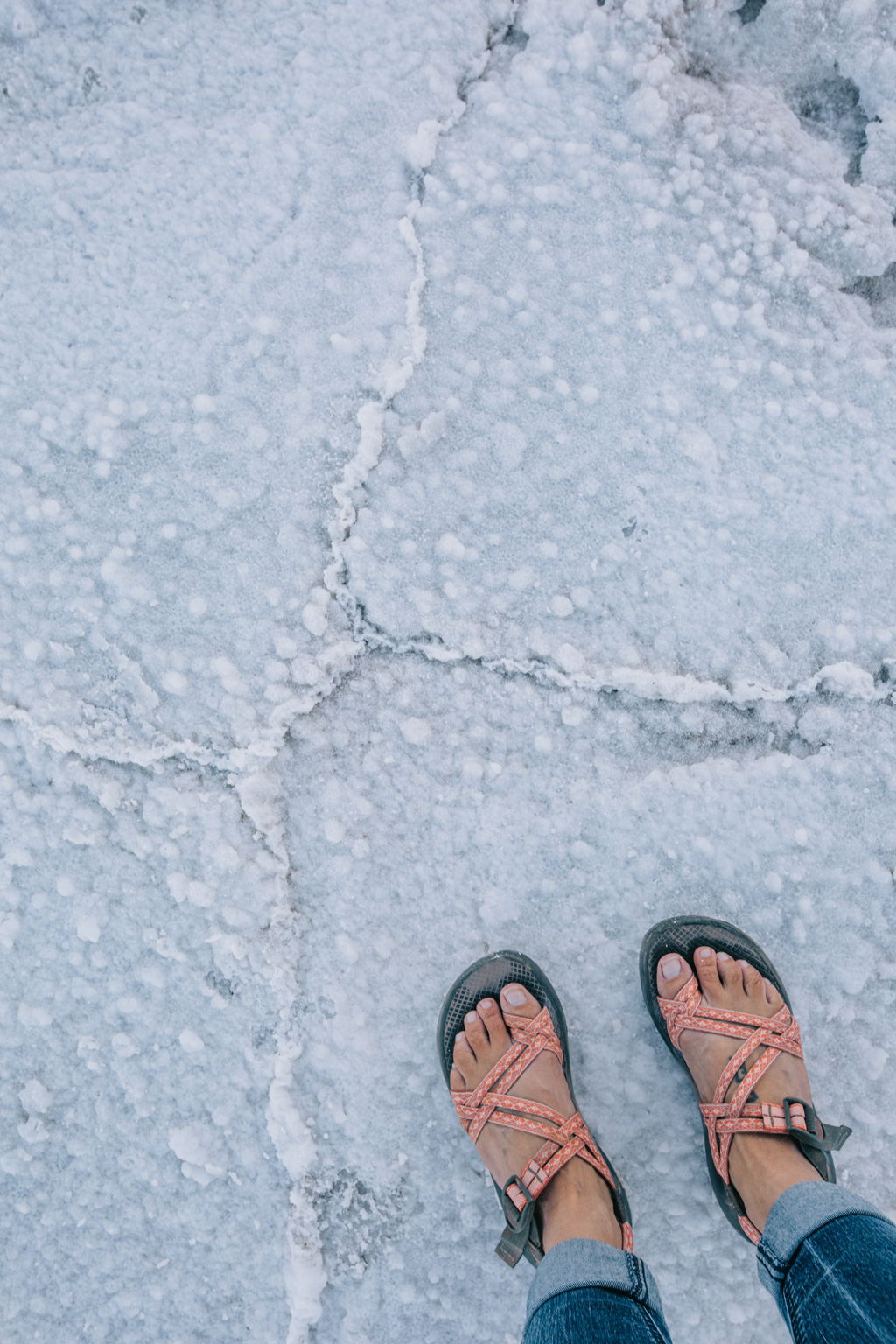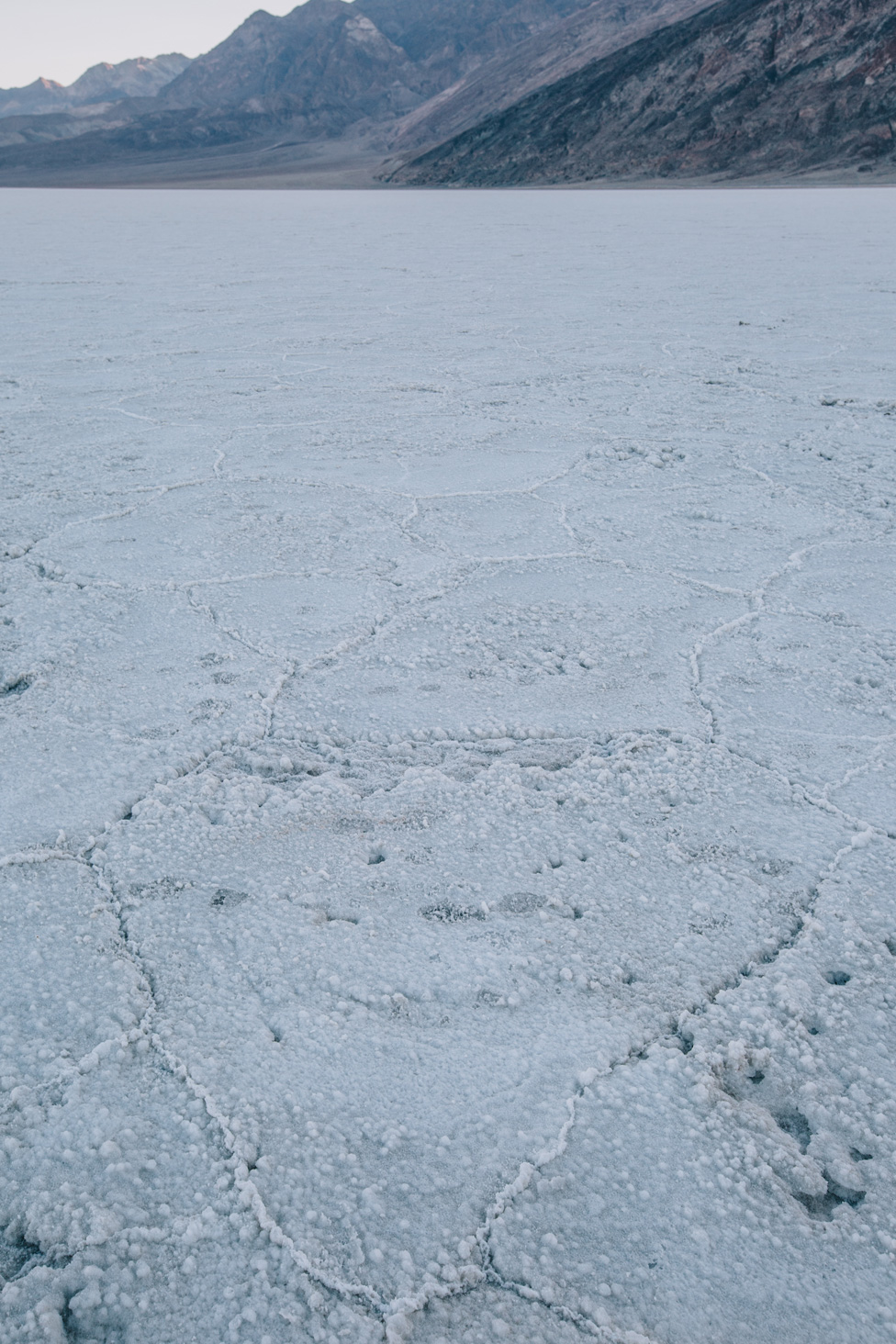To Couch or Not to Couch
I mentioned last week that it was nearly a year ago that we sold our home and moved into our little camper. I’ve been thinking about our home there on Kendall Lane so much as the anniversary date approaches and I admit that it hasn’t been without some homesickness. It also has me thinking about the idea of minimalism and small-space living and what I’ve come to feel about these trendy ideas lately.
First, let me lead with the fact that I think the vast majority of us can benefit tremendously from giving a good, hard look at what we own, why we own it, how it serves our lives and the lives of those around us, and how our belongings intersect with our values and what is most important to us. I also think it’s important to say that what the result of that questioning looks like can be quite different from household to household.
When I was in my early twenties, working full-time in the outdoors and obsessed with books like Desert Solitaire and Blue Highways and Walden (all utterly fantastic books that absolutely stand the test of time and should be on your required reading list for life), I would repeat often and loudly my favorite line from Fight Club, “The things you own end up owning you.” I vowed never to own more than could fit into my car (and that that would consist mostly of outdoor equipment), that I was going to remain above and separate from a consumer culture where people traded the minuscule time they were gifted with for their lives to make money so that they could buy things they didn’t need. I was vehement that I would never own a sofa and had #vanlife been a thing back then, I would have been the first one in line. Instead, I had a 1998 Kia Sportage that my sister nicknamed “The Roller Skate” and which, by the time it finally saw it’s last, had crisscrossed this country more times than I could count, had climbed more mountains and driven down more rutted gravel roads than Kia had ever imagined it’s little car was capable of, and had more than 250,000 miles on it. Miles I’d relished. Miles in which I’d come of age and discovered a version of myself that felt as near to the real me as I’d ever been.
And then I got sick and my life changed. I was so grateful to the friends and family who hadn’t been so quick to poo-poo the idea of a home or a couch and who graciously allowed me to take comfort in the loving nests they’d created. As I turned away from the work and life I wasn’t physically able to sustain anymore, I began walking down a different road. In Walden, Thoreau famously says “beware of all enterprises that require new clothes,” a line with which I was intimately familiar and had quoted smugly time and again. But as I tucked my Chacos and climbing shoes away and replaced them with the dark suits and uncomfortable pumps required by law school and its associated internships and interviews, those words receded to the same dusty places in the back of my new walk-in closet where my gear now resided. As I struggled to cope with the rigors of an intense academic undertaking (and swallow the looming sense that I didn’t fit there), I took enormous comfort in the cultivation of my home space. I cooked for friends who sat at my second hand table and on my garage-sale couch and I relished that my home could be a place where not only I found respite, but others could as well.
But over time, I began to spend more and more time and energy fantasizing over a new table from Restoration Hardware or a couch I’d circled in my most recent Pottery Barn catalog. And as I grew less satisfied with the table and sofa I already had, I grew less satisfied with the life I already had. Instead of continuing to savor the brimming joy of a bursting house at Thanksgiving, I began to wish for a bigger house, convinced that more space and more dishes (and the $130 pumpkin-shaped soup tureen that I’d seen in a catalog, even though soup wasn’t part of any Thanksgiving meal I’d ever participated in) would be better. That life would be better if I had those things.
Which is where, of course, I began to lose ground. Because this idea that my life would be better if I could only have more space, more expensive furniture, etc created a need to make more money in order to buy those “nicer” things. My acquisitiveness meant I now judged my success by my material worth instead of my impact on the lives of others, that I sacrificed the time I once spent on conversation and community and thriving in the outdoors on working, working, working. Working to make money, working to “keep up,” working to quiet the voice in my head that kept repeating the quotes from Desert Solitaire and Walden and my twenty-something self that knew better than this even if she was wrong in her own way.
We all know the next part, right? Because so many of us have been there. The part where we realize that we simply cannot keep this up, that we simply cannot continue in this vein. We begin to see the cracks in ourselves, in our relationships, the toll it takes on our health and our lives and our sense of self-worth. And it was at this point that I finally began to slowly realize that the “stuff” itself is largely irrelevant. More or less, fancy or second-hand…these aren’t the parts of the conversation that really matter. It’s our relationship to the stuff that seems to be the relevant piece. That a couch is really just a pile of wood and fabric that is something to sit on, neither good nor bad, unless we choose to make it a pariah or give it undue prestige.
When I was 20, I thought owning a couch would derail my life. When I was thirty, I thought my life could only be complete if I owned the RIGHT couch. Now, as I approach forty, I wonder why I spent so much energy worrying about couches. Which is where I begin to depart from the minimalism/tiny house movement almost as much as I depart from the idea that 5000 square feet and a two-car garage are inherently desirable. I am absolutely content in our 83 square feet right now, and I relish the mobility that our small space affords us, the excitement of experiencing new places and new people, and the growth in our relationship as we continue to learn how to live well together in such an intimate space. I love that we have to weigh whether something we consider purchasing is truly worth the space and inevitable effort associated with making it fit into our set-up. Our small camper home leaves no option except to live with intention, to purchase with intention.
I also deeply loved our home in Maine. I loved quiet fall mornings drinking coffee on our deck and looking out at the trees as the changed color, the energy and inspiration I derived. I loved being able to say, “We have space for you- come stay as long as you need to,” when someone we loved needed comfort or time or simply a place to lay their head for a few nights. I loved planting a garden and tending my small plot of earth and planting seedlings that would take years to mature. I loved having a space to spread out my tools and create with abandon, where I could annex the dining room in order to learn to sew or draw or bake, to experiment and learn and play.
Every type of living comes with a cost. Our life now has no space to offer guests, so in addition to the costs of travel, our visitors now also have the added financial burden of accommodation. Our life in Maine came with a mortgage and more limited time and money for travel and extended time outside. In the camper, we have no space to store more than a few days’ worth of food, so we spend more money and have less ability to make the most of shopping at the farmer’s market or take advantage of seasonal produce by freezing or canning. When we lived in the house, we were more inclined to fall back on routines and eat variations of the same meals over and over because we were “busy" and had a sense that we could try something new “later.” We spend three months at a time parked in a cramped spot in an RV park, lacking much privacy and using whatever bathroom and shower facilities are available there (it’s been a looooong time since I showered without flip flops on my feet). In our house, summer weekends were often spent mowing the yard and cleaning the house instead of enjoying our time off together. I could continue, but I think you get the point.
I have moments of every day in which I experience acute homesickness for some aspect of our home or our life in Maine. And I have moments of every day in which I cannot imagine leaving this camper life behind any time soon. There will one day come a time when we will be ready for our next adventure, one that may very well include a mortgage and a couch. And we may someday choose to leave that life for a different one. As we move through each era in our lives to come, I hope that we can continue to focus on living in the very best way we know how, and owning whatever belongings are most befitting that way of living without getting too caught up in the ideas of what we should (or shouldn’t) own.
Sometimes it really is okay for a couch to just be a couch, neither evil nor holy.
---
We are in our last few weeks here in Reno and I realized I never shared the last leg of our journey here from Texas! Where have the weeks gone? So below are a few images from our time in Death Valley followed by our leisurely drive up California to Reno, including an attempted visit to the ancient Bristlecone pines (we got turned around by snowpack, which felt crazy after enduring temperatures over 100*F in a swirling sandstorm in Death Valley the previous day)...

































